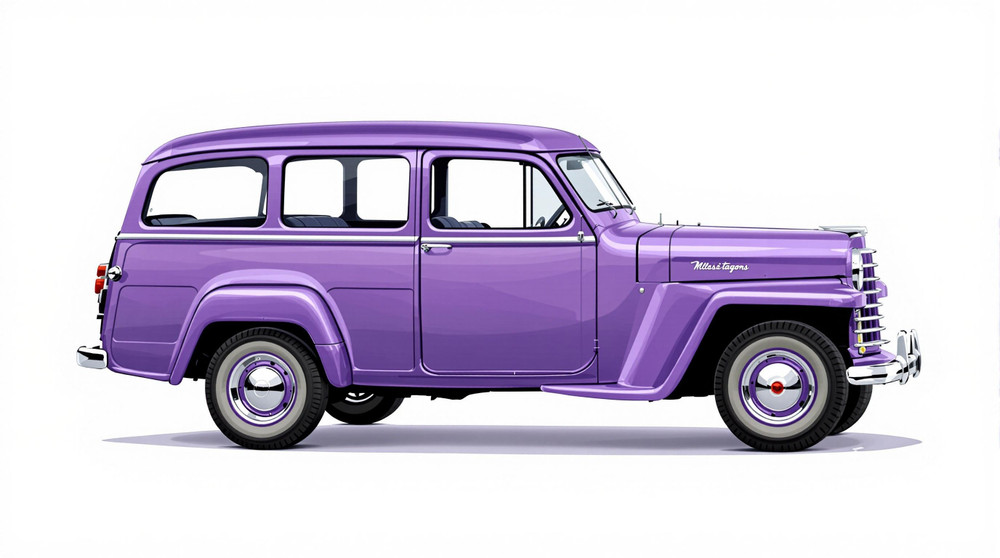Image of 1952 Willys Station Wagon, Note: These illustrations use artistic license and may differ from actual historical models.
Performance Metrics
Fundamental Metrics
Emotional Appeal
MMP Rating
| Engine Specifications | |
|---|---|
| Engine Options: | L-134 "Go Devil" I4, F-134 "Hurricane" I4 |
| Displacement Range: | 134 cu in (2.2 L) for both engines |
| Horsepower Range: | 60-75 hp |
| Torque: | 105 lb-ft for L-134, 114 lb-ft for F-134 |
| Compression Ratio: | 6.48:1 for L-134, 7.5:1 for F-134 |
| Ignition System: | Battery Ignition |
| Cooling System: | Liquid-cooled |
| Performance Specifications | |
| 0-60 Time: | Estimated 20-30 seconds |
| 1/4 Mile Time: | Not available |
| Top Speed: | 65 mph |
| Transmission and Drive | |
| Drive Type: | Rear-wheel drive (4x4 optional) |
| Transmission Type: | 3-speed manual |
| Fuel and Efficiency | |
| Fuel System Type: | Carburetor |
| MPG: | Estimated 15-20 mpg |
| Dimensions and Brakes | |
| Brakes: | Drum brakes |
| Wheelbase: | 104.5 inches |
| Weight: | 3,200 lbs |
Note: Specifications for classic cars are given to the best of our ability, considering the limited and variant data available.
1952 Willys Station Wagon: The Pioneer of Modern SUVs
The 1952 Willys Station Wagon stands as a testament to American ingenuity and the dawn of the family SUV. Born from the rugged utility of World War II-era vehicles, Willys-Overland Motors crafted a car that would cater to the post-war appetite for practicality and versatility. This vehicle not only served as a precursor to the modern SUV but also marked a significant transition from military to civilian life for the automaker. A notable moment in its history was its pioneering use of an all-steel body construction, which set it apart from the wood-framed station wagons of the time.
Design and Innovation
The exterior of the 1952 Willys Station Wagon was both functional and stylish, featuring a bold, upright grille and rounded fenders that exuded a sense of durability. The interior was surprisingly spacious, with a focus on utility over luxury. Materials were robust, designed to withstand the rigors of daily use by active families and businesses alike. Technologically, it boasted innovations such as independent front suspension and four-wheel drive options, which were quite advanced for its era. Color options ranged from utilitarian hues to more vibrant tones, with Seacrest Green being a popular choice among consumers. The most iconic body style was undoubtedly the two-door wagon, with variants including the panel van catering to commercial clients.
Historical Significance
The 1952 Willys Station Wagon's impact on automotive design cannot be overstated. It blazed a trail for subsequent generations of family vehicles that combined passenger comfort with off-road capability. Its all-steel body construction eliminated the need for frequent maintenance associated with wood-bodied wagons and influenced future designs across the industry.
Performance and Handling
Performance-wise, the 1952 Willys Station Wagon wasn't built for speed; it was built for reliability. With modest top speeds and acceleration figures that reflected its utilitarian nature, it was more at home on rough terrain than on a drag strip. Handling was straightforward and sturdy, capable of tackling bumps and challenging roads with relative ease. Drivers often praised the vehicle's no-nonsense approach to transportation, enjoying the throaty hum of its inline-four or optional six-cylinder engine.
Ownership Experience
Owners typically used their Willys Station Wagons as daily drivers, work vehicles, or even as early recreational off-roaders. Maintenance was generally straightforward due to its simple mechanics and wide availability of parts—a boon for average owners who valued practicality over prestige.
Fun Facts
Among enthusiasts, it's well-known that some versions of this vehicle came equipped with marine-themed interiors as part of a "Sea View" trim package—complete with boating motifs. While not known for breaking speed records, it certainly set sales records for Willys-Overland at the time. Criticisms often centered around its modest power output and utilitarian comfort levels.
Collector's Information
Today, collectors value the 1952 Willys Station Wagon for its historical significance and charm. While production numbers weren't meticulously recorded at the time, estimates suggest tens of thousands were produced. As for value range, well-preserved models can fetch anywhere from $15,000 to $40,000 or more depending on originality and condition. The market has seen a steady appreciation for these vehicles as they embody both nostalgia and pioneering spirit.
Conclusion
The 1952 Willys Station Wagon is more than just an old car; it's a piece of American history that paved the way for today's family SUVs. Its legacy is one of innovation, transition, and practicality—a true icon in automotive evolution. For those who own one today or aspire to, it represents not just an investment but also an enduring symbol of Americana.
1952 Willys Station Wagon Catalog of Parts
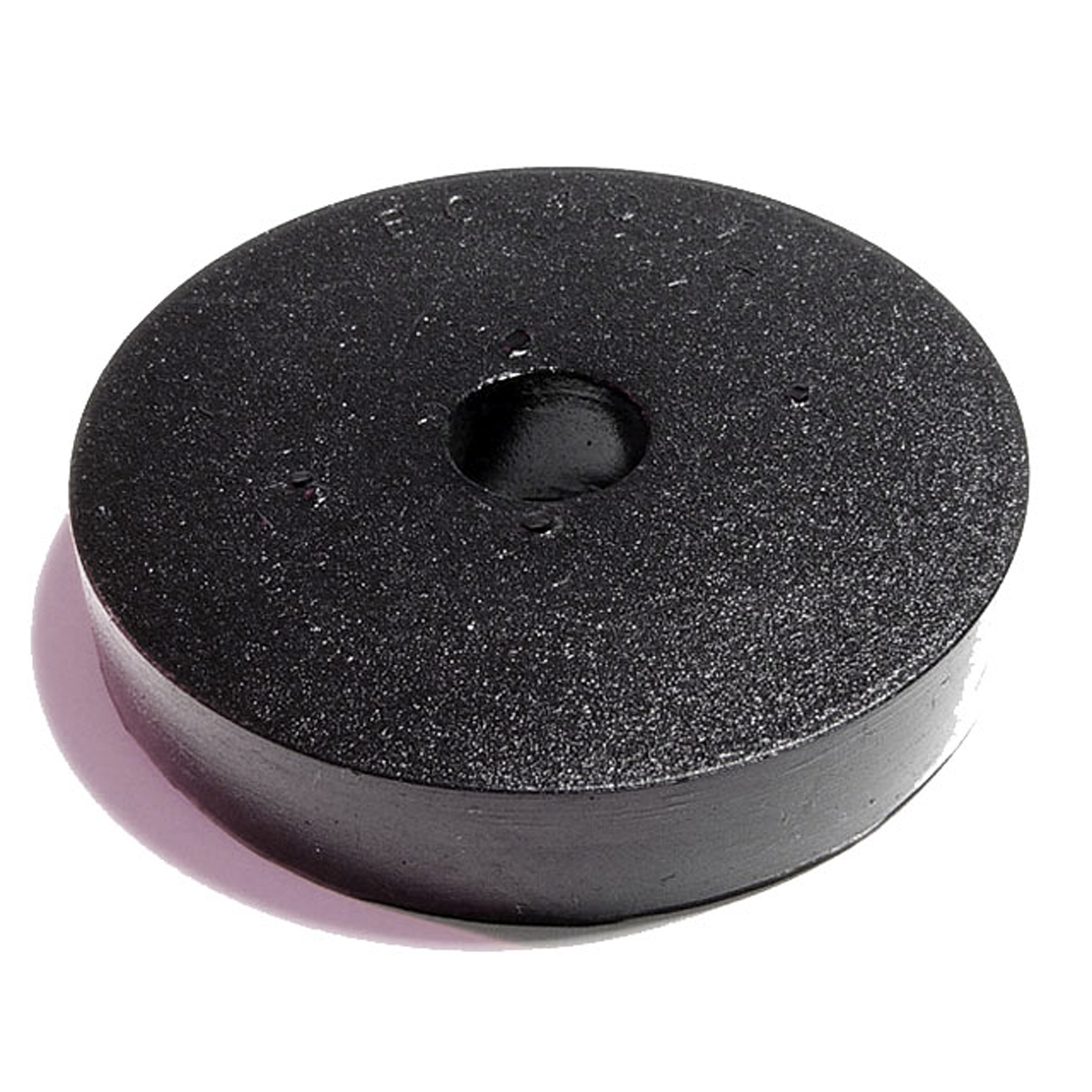 1952 Willys Station Wagon Body Mount Cushion. 1-15/16" O.D., 3/8" I.D., 3/8" Thick-BC 40-ABody Mount Cushion. 1-15/16" O.D., 3/8" I.D., 3/8" Thick. Each
1952 Willys Station Wagon Body Mount Cushion. 1-15/16" O.D., 3/8" I.D., 3/8" Thick-BC 40-ABody Mount Cushion. 1-15/16" O.D., 3/8" I.D., 3/8" Thick. Each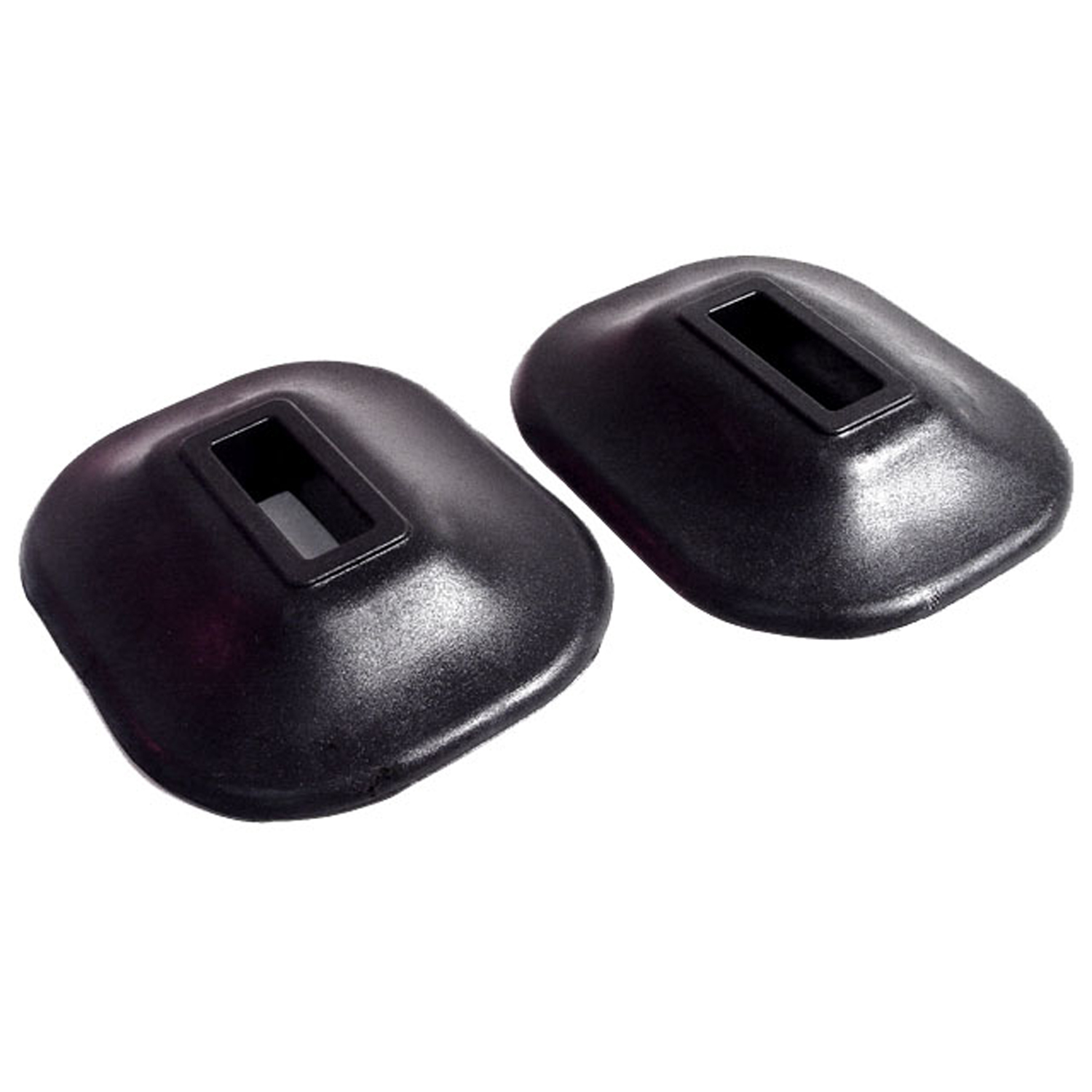 1952 Willys Station Wagon Front and Rear Bumper Arm Grommets-BG 62Front and Rear Bumper Arm Grommets. 3-1/8" wide X 3-7/8" long, with 1-3/8" long inner slot. Pair
1952 Willys Station Wagon Front and Rear Bumper Arm Grommets-BG 62Front and Rear Bumper Arm Grommets. 3-1/8" wide X 3-7/8" long, with 1-3/8" long inner slot. Pair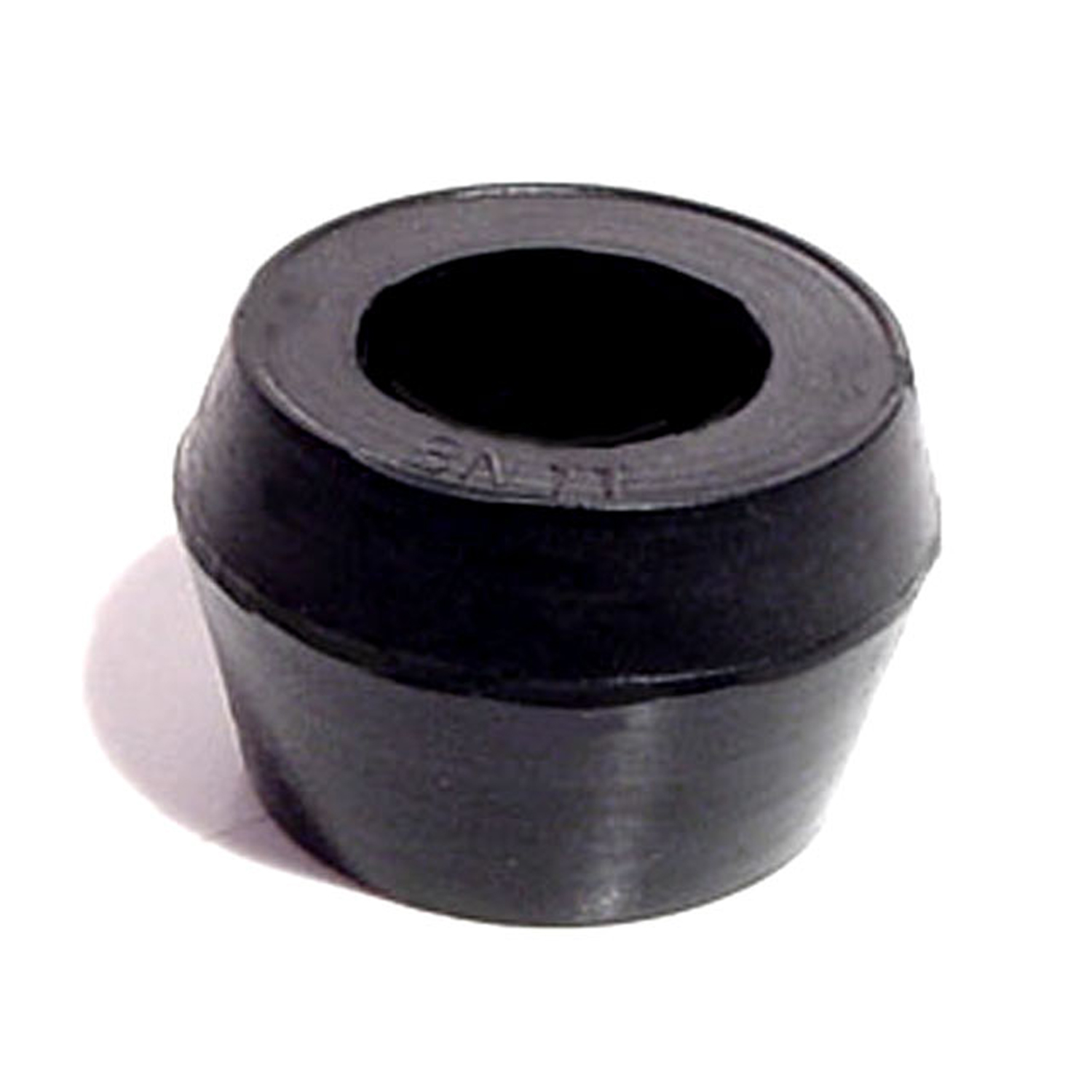 1952 Willys Station Wagon Shock Absorber Grommet. 1" bottom O.D-BN 11Shock Absorber Grommet. 1" bottom O.D., 3/4" high, with 5/8" I.D. Each
1952 Willys Station Wagon Shock Absorber Grommet. 1" bottom O.D-BN 11Shock Absorber Grommet. 1" bottom O.D., 3/4" high, with 5/8" I.D. Each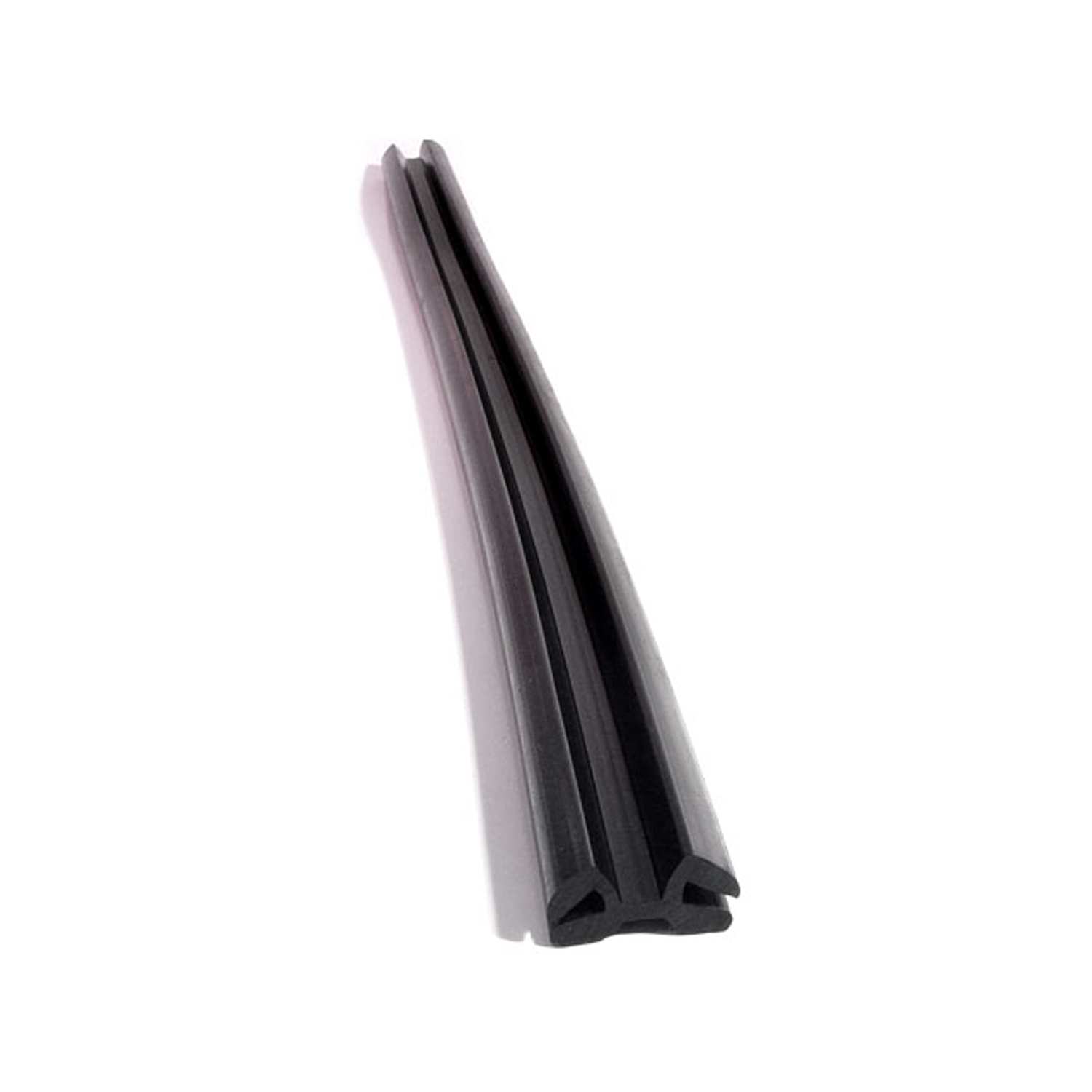 1952 Willys Station Wagon Center Division Bar Seal. 20" piece, to be cut to length-DP 40Center Division Bar Seal. 20" piece, to be cut to length. Each
1952 Willys Station Wagon Center Division Bar Seal. 20" piece, to be cut to length-DP 40Center Division Bar Seal. 20" piece, to be cut to length. Each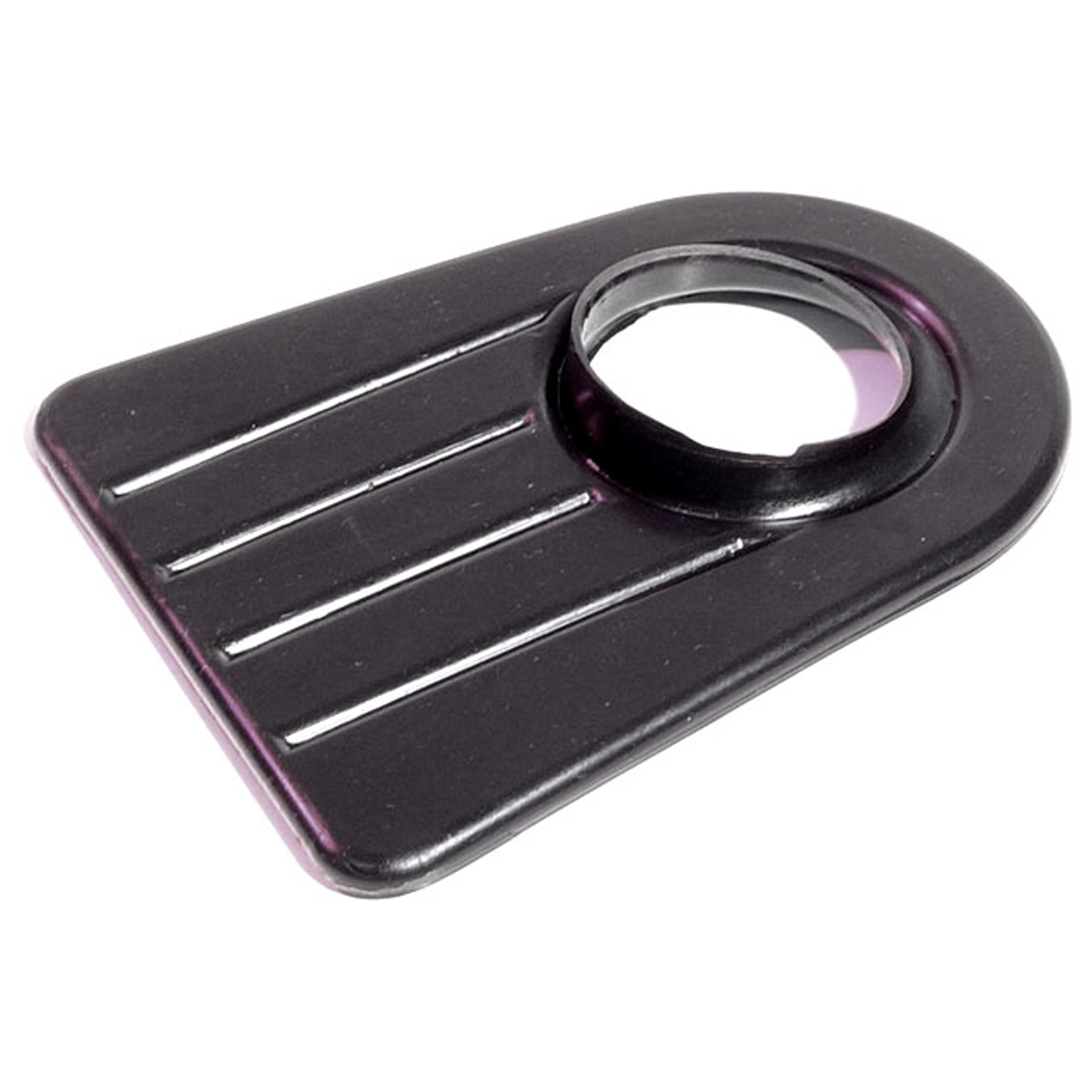 1952 Willys Station Wagon Gas Filler Grommet. 2-1/8" I.D., 6-3/8" length. Each-GF 29-AGas Filler Grommet. 2-1/8" I.D., 6-3/8" length. Each
1952 Willys Station Wagon Gas Filler Grommet. 2-1/8" I.D., 6-3/8" length. Each-GF 29-AGas Filler Grommet. 2-1/8" I.D., 6-3/8" length. Each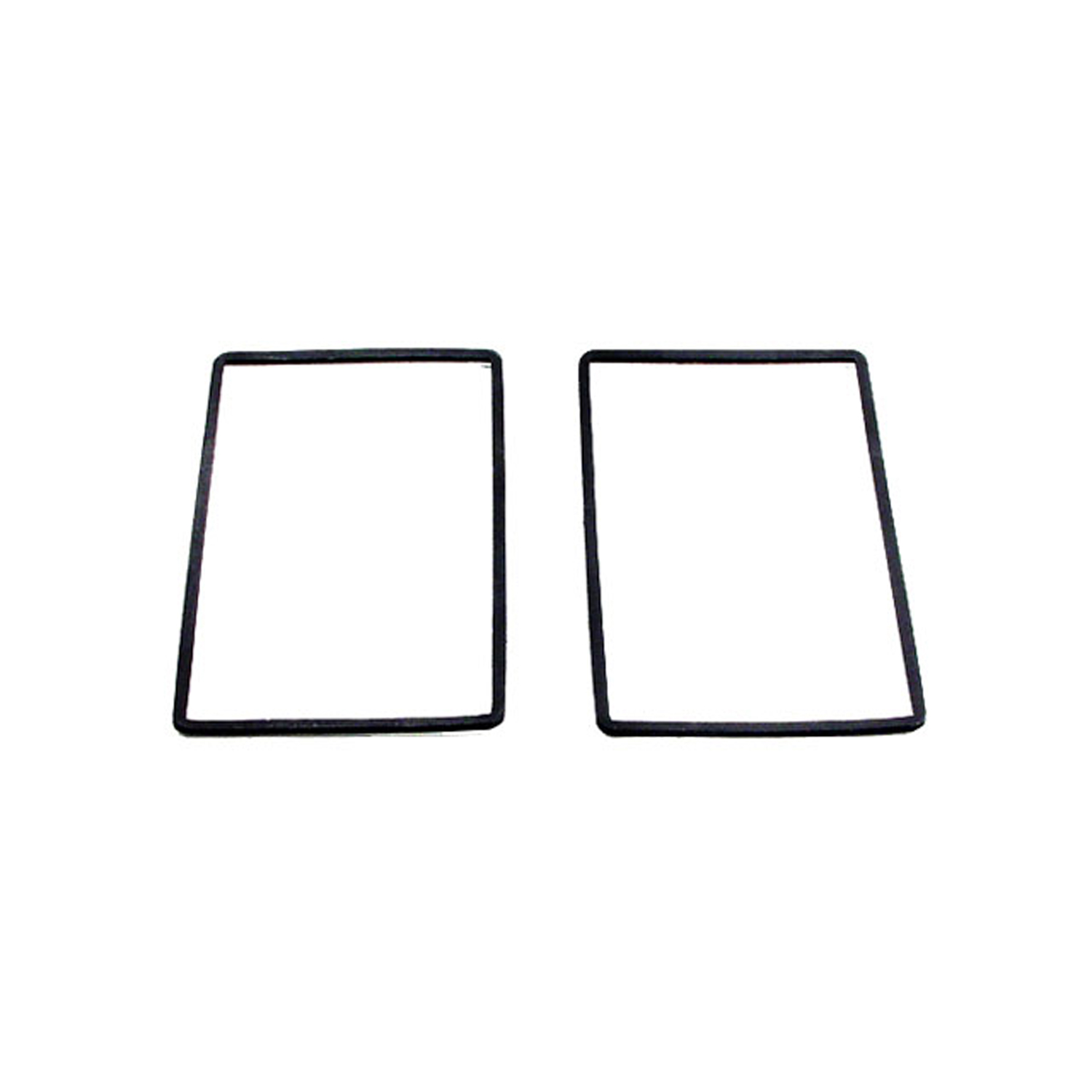 1952 Willys Station Wagon Tail-light Bezel Lens Gaskets. 2-3/4" X 2-5/16". Pair-LG 9600-120Tail-light Bezel Lens Gaskets. 2-3/4" X 2-5/16". Pair
1952 Willys Station Wagon Tail-light Bezel Lens Gaskets. 2-3/4" X 2-5/16". Pair-LG 9600-120Tail-light Bezel Lens Gaskets. 2-3/4" X 2-5/16". Pair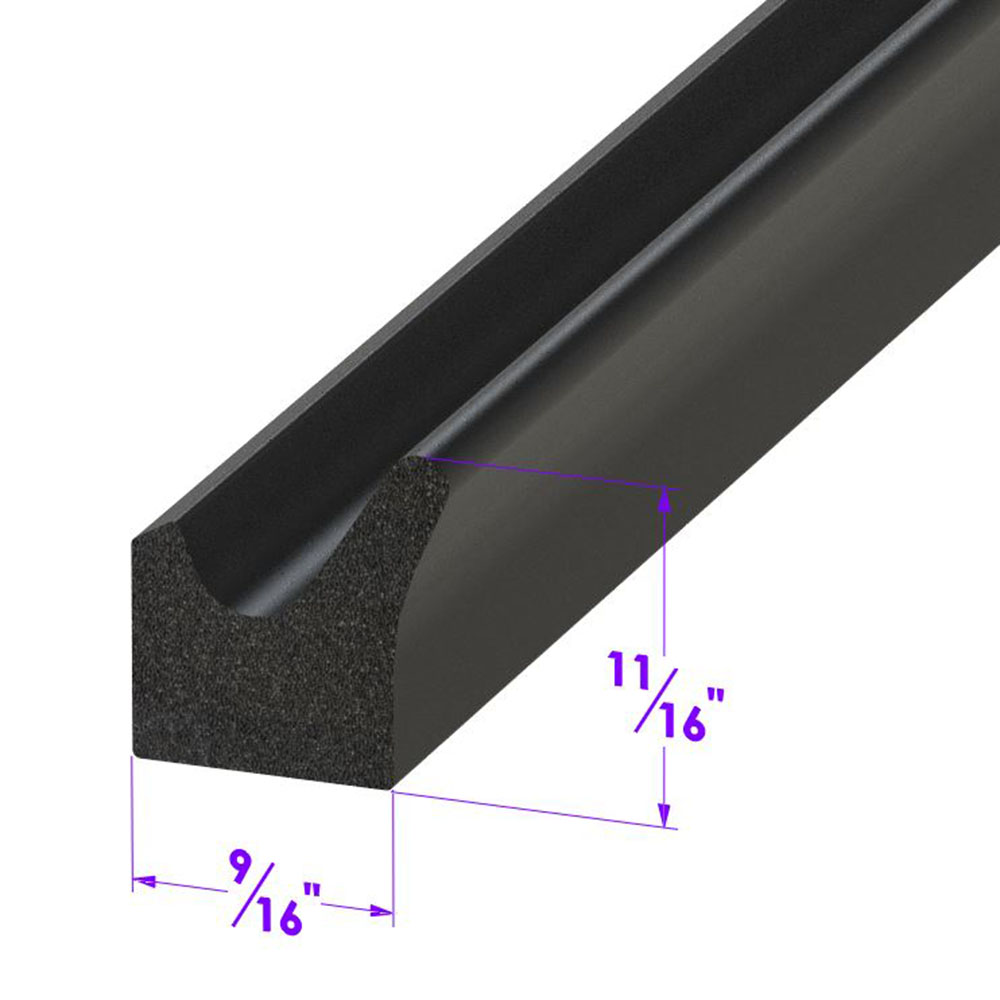 1952 Willys Station Wagon Door side seal. Same as LP 40-A, but for a heavier seal-LP 40Door side seal. Same as LP 40-A, but for a heavier seal. Fits many domestic passenger cars and trucks. Used in Cobra kit cars as trunk weatherstrip. Per foot.
1952 Willys Station Wagon Door side seal. Same as LP 40-A, but for a heavier seal-LP 40Door side seal. Same as LP 40-A, but for a heavier seal. Fits many domestic passenger cars and trucks. Used in Cobra kit cars as trunk weatherstrip. Per foot.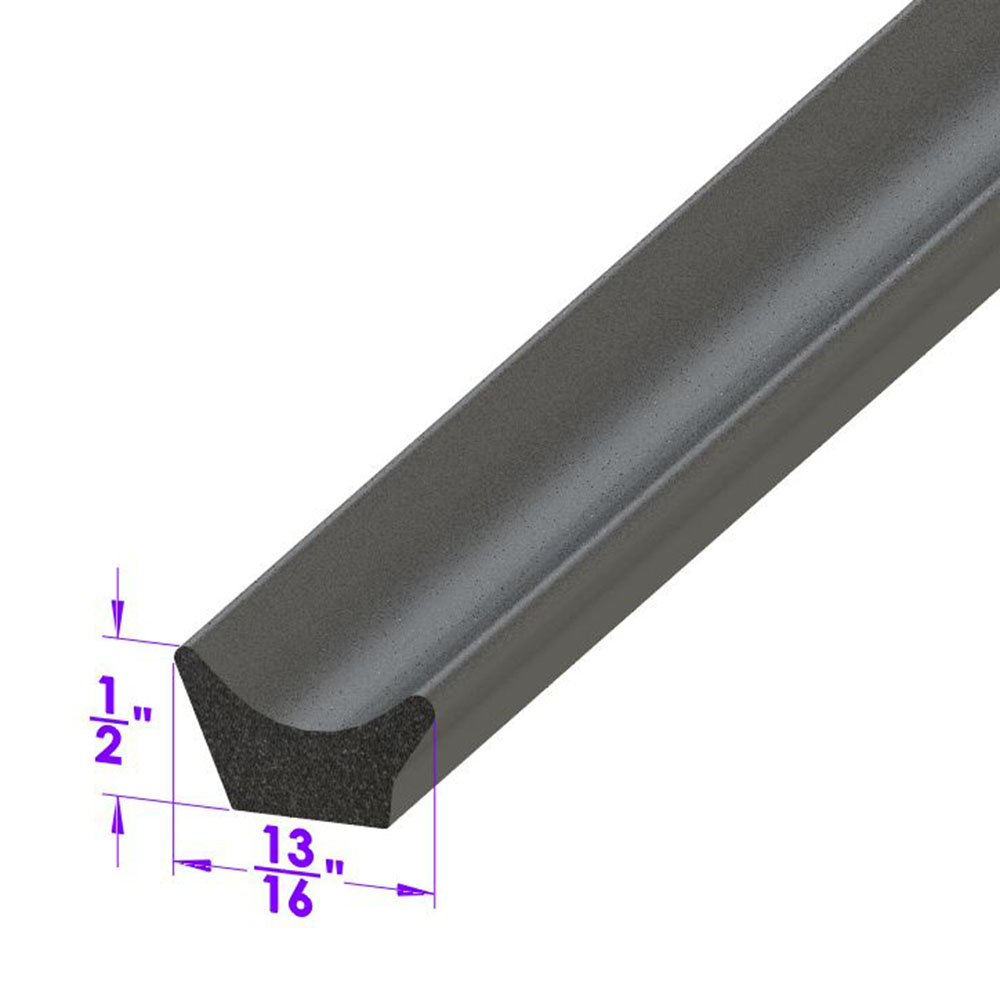 1952 Willys Station Wagon Door side seal. Same as LP 40, but for a lighter seal-LP 40-ADoor side seal. Same as LP 40, but for a lighter seal. Fits many domestic passenger cars and trucks. Universal seal for street rods and customs. Used in Cobra kit cars as door weatherstrip. Per foot.
1952 Willys Station Wagon Door side seal. Same as LP 40, but for a lighter seal-LP 40-ADoor side seal. Same as LP 40, but for a lighter seal. Fits many domestic passenger cars and trucks. Universal seal for street rods and customs. Used in Cobra kit cars as door weatherstrip. Per foot.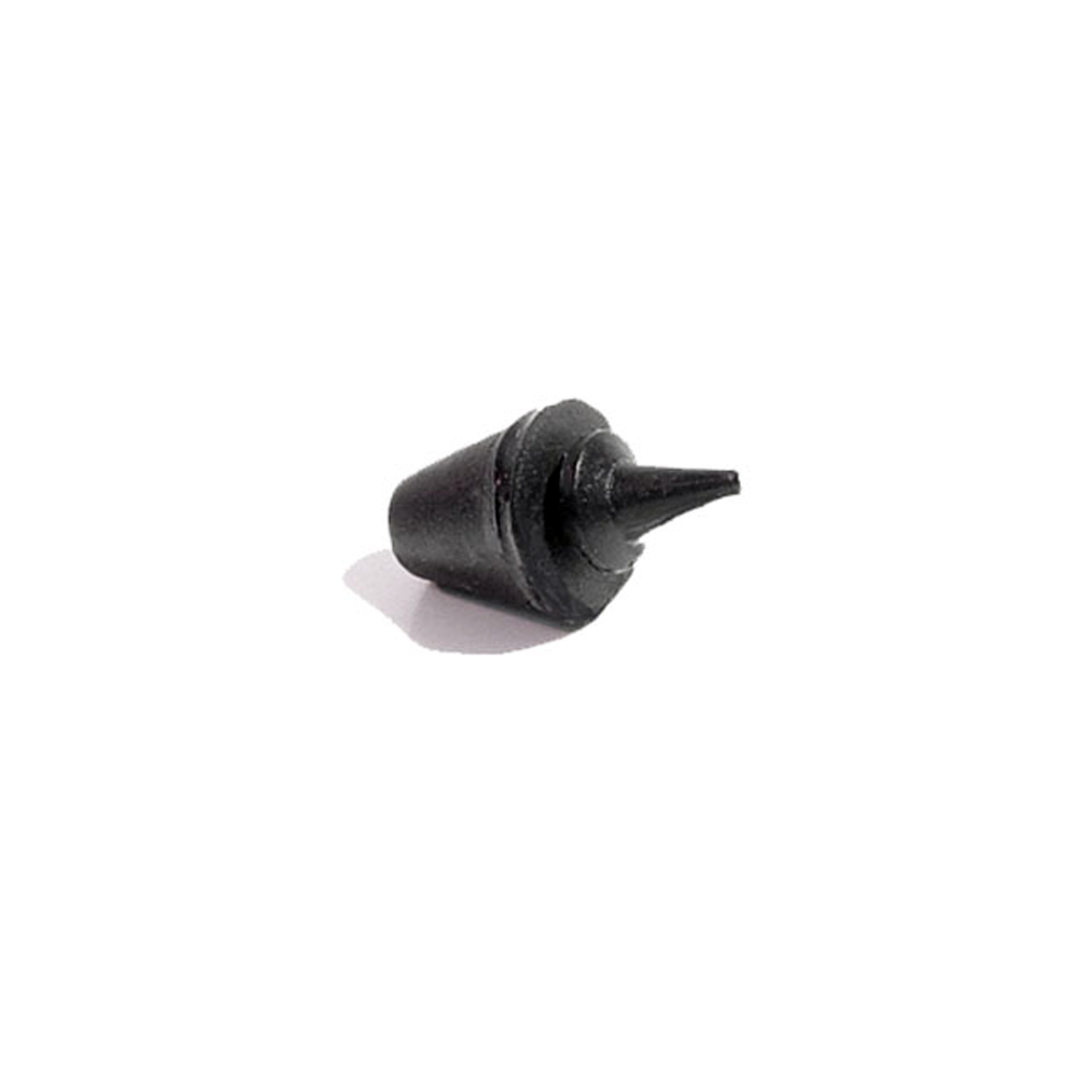 1952 Willys Station Wagon Glove Box Bumper. Each-SB 83Glove Box Bumper. Each
1952 Willys Station Wagon Glove Box Bumper. Each-SB 83Glove Box Bumper. Each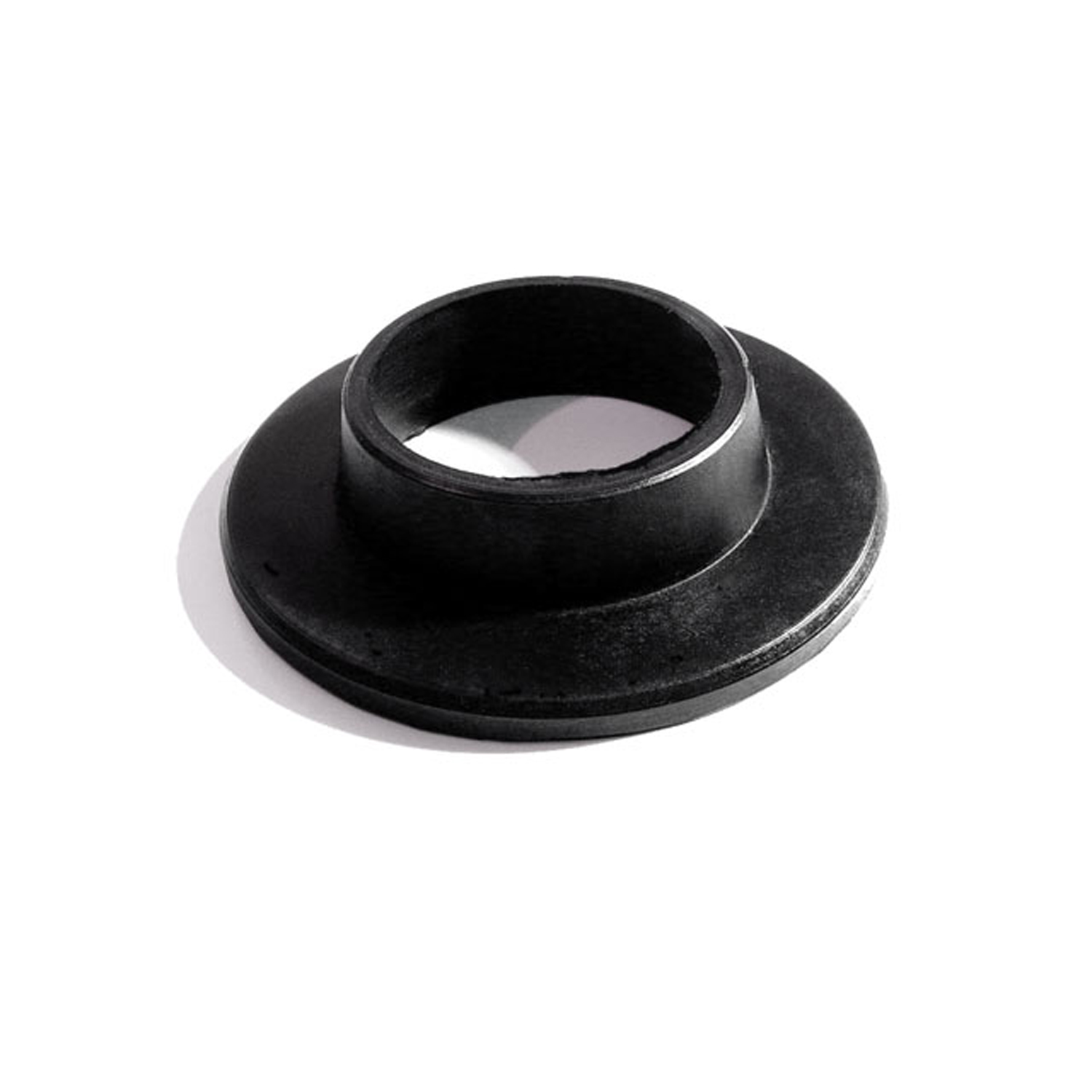 1952 Willys Station Wagon Steering Column Grommet-SC 13Steering Column Grommet. For 4-Wheel Drive Station Wagon Only. Each
1952 Willys Station Wagon Steering Column Grommet-SC 13Steering Column Grommet. For 4-Wheel Drive Station Wagon Only. Each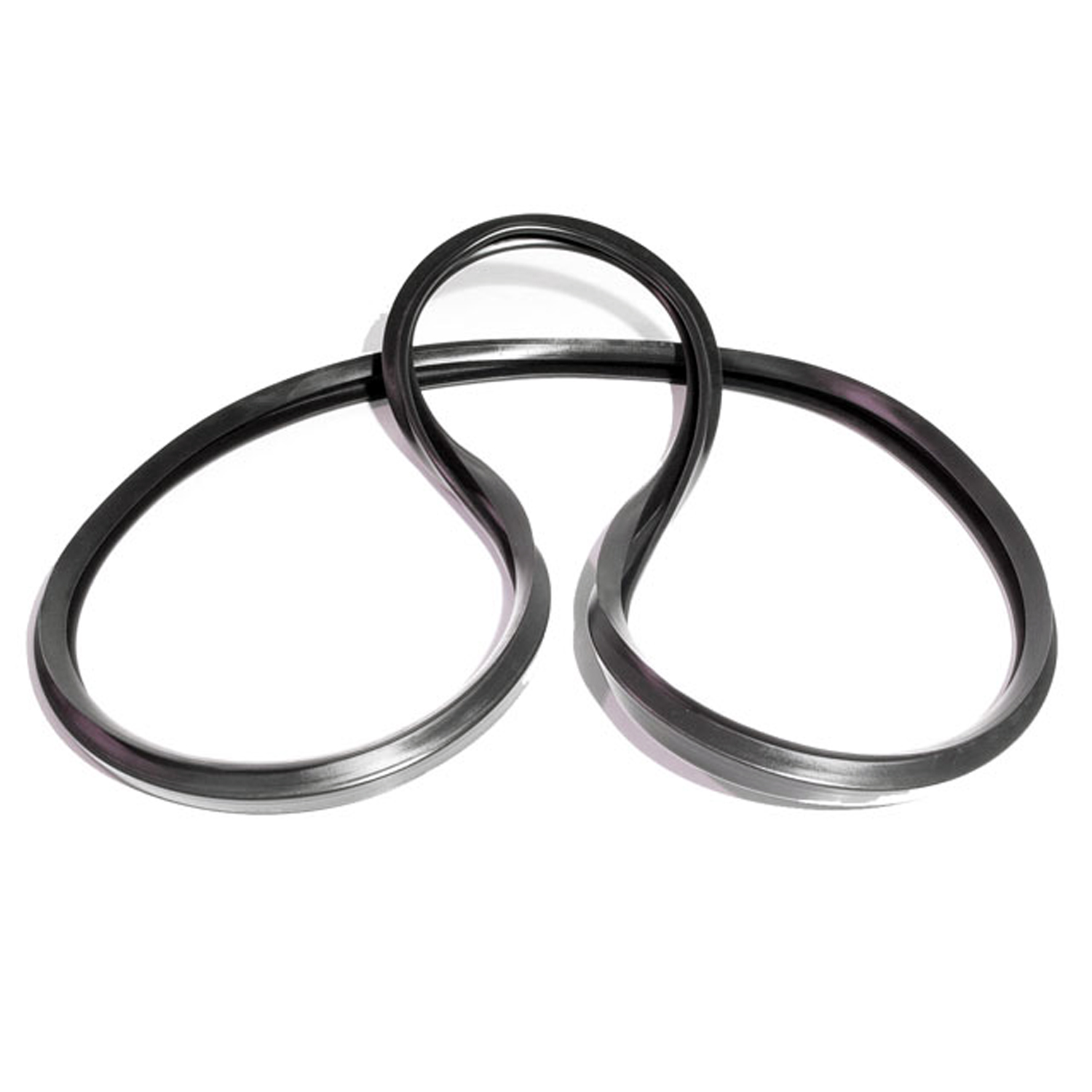 1952 Willys Station Wagon Vulcanized Side Front-Rear Sliding Window Seal-VQT 9600Vulcanized Side Front-Rear Sliding Window Seal. Made into one piece for easy installation. Order 2 to do both sides. Replaces OEM #671419. Each
1952 Willys Station Wagon Vulcanized Side Front-Rear Sliding Window Seal-VQT 9600Vulcanized Side Front-Rear Sliding Window Seal. Made into one piece for easy installation. Order 2 to do both sides. Replaces OEM #671419. Each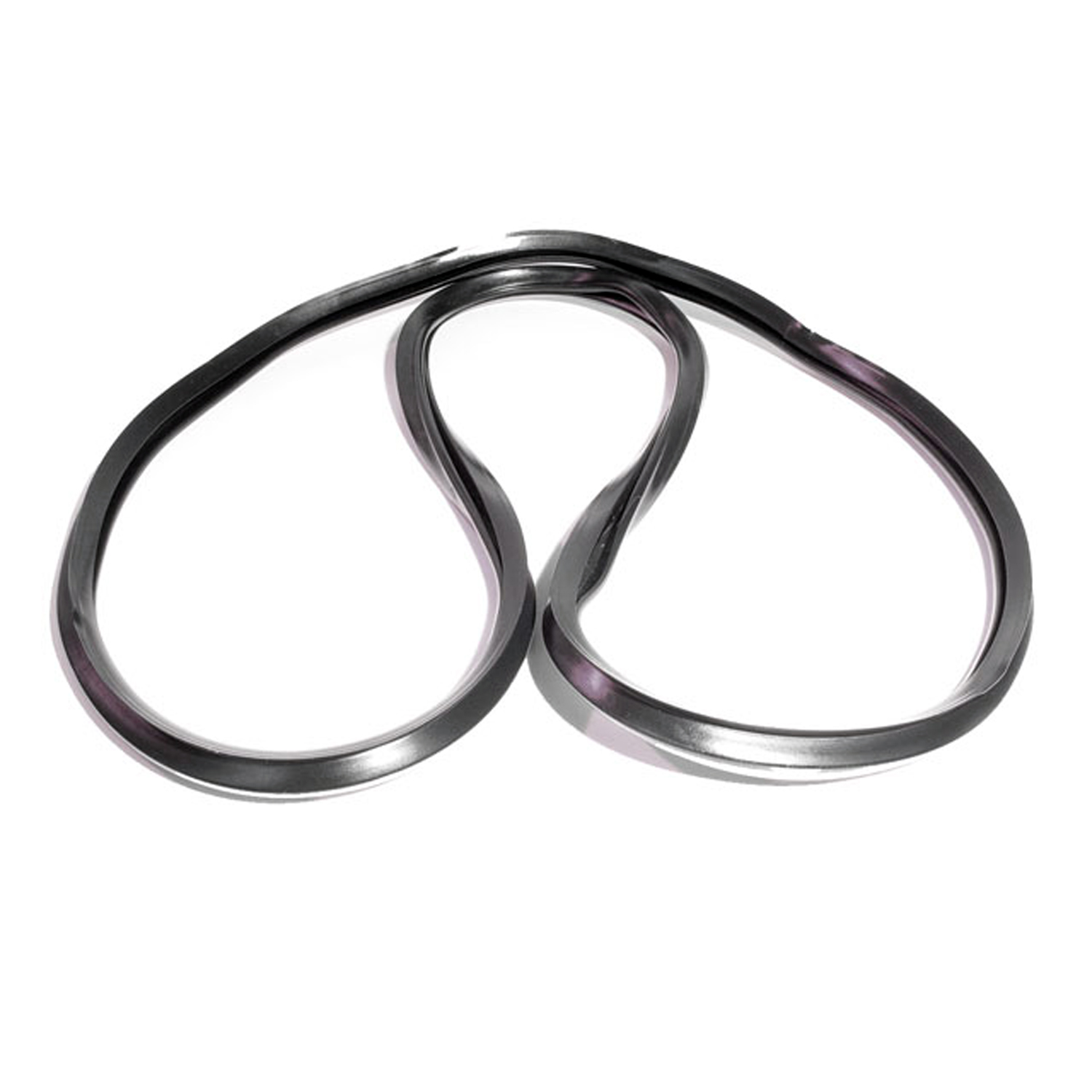 1952 Willys Station Wagon Vulcanized Side Rear-Rear Sliding Window Seal-VQT 9601Vulcanized Side Rear-Rear Sliding Window Seal. Made into one piece for easy installation. Order 2 to do both sides. Replaces OEM #664257. Each
1952 Willys Station Wagon Vulcanized Side Rear-Rear Sliding Window Seal-VQT 9601Vulcanized Side Rear-Rear Sliding Window Seal. Made into one piece for easy installation. Order 2 to do both sides. Replaces OEM #664257. Each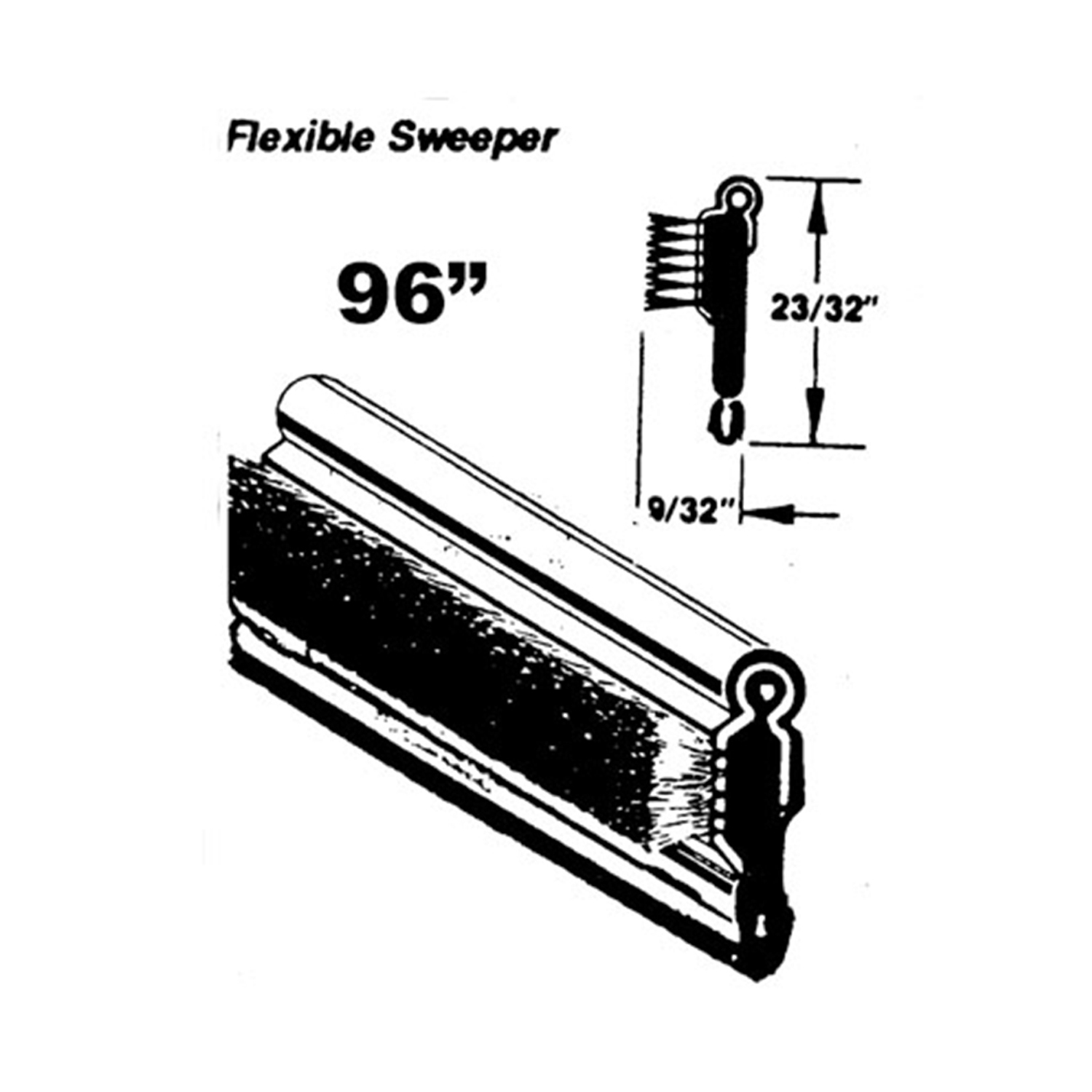 1952 Willys Station Wagon Flexible window sweeper. Made with stainless steel bead-WC 4-96Flexible window sweeper. Made with stainless steel bead. 96 in. long. Each. NOTE: $20 special shipping charge applies for domestic orders. Call or email for overseas shipping costs. Part can be sectioned in two or three equal lengths to reduce overseas shipping costs.
1952 Willys Station Wagon Flexible window sweeper. Made with stainless steel bead-WC 4-96Flexible window sweeper. Made with stainless steel bead. 96 in. long. Each. NOTE: $20 special shipping charge applies for domestic orders. Call or email for overseas shipping costs. Part can be sectioned in two or three equal lengths to reduce overseas shipping costs.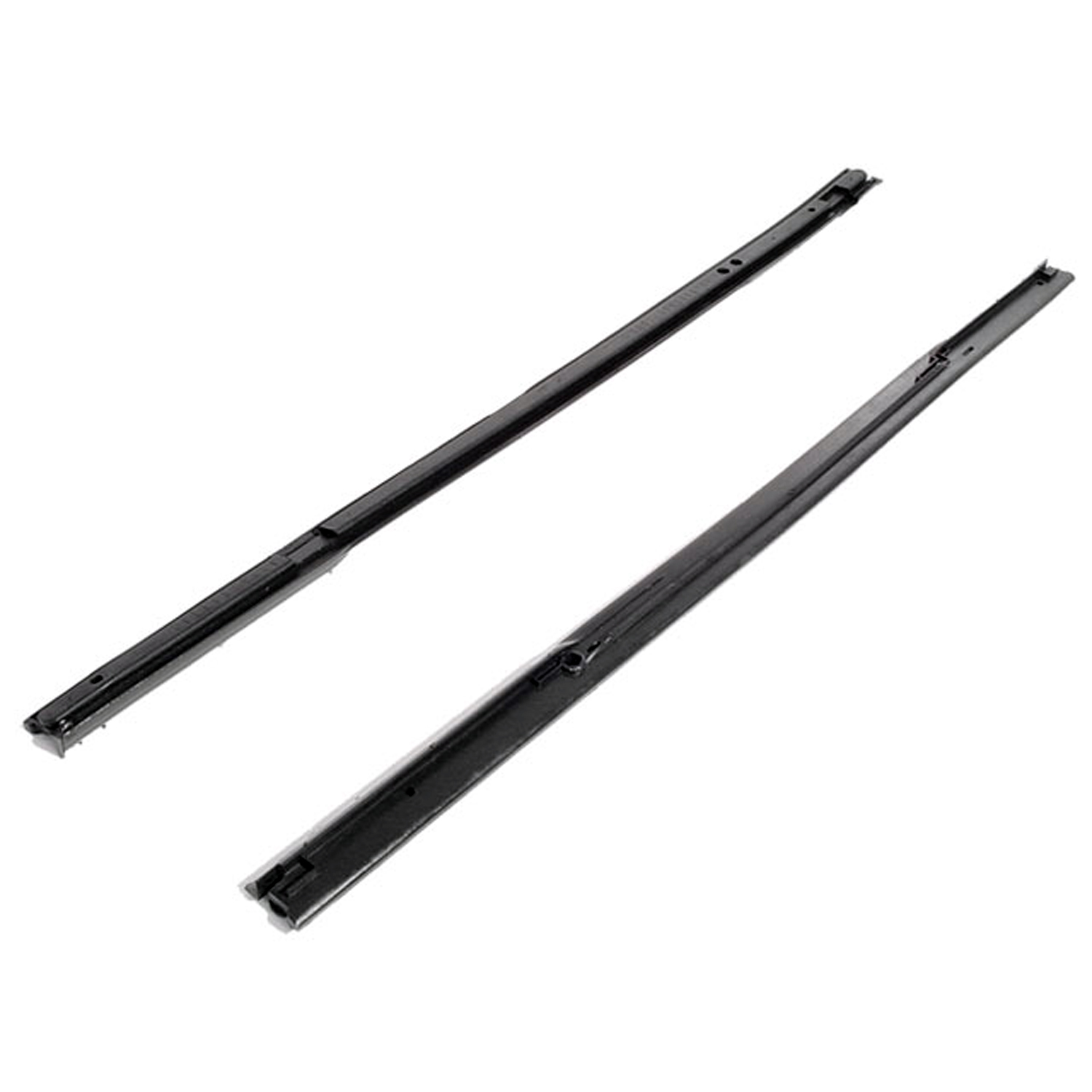 1952 Willys Station Wagon Front Vent Window Seals. For Trucks and Station Wagons-WR 9601Front Vent Window Seals. For Trucks and Station Wagons. Pair
1952 Willys Station Wagon Front Vent Window Seals. For Trucks and Station Wagons-WR 9601Front Vent Window Seals. For Trucks and Station Wagons. PairWhy Choose Metro?
For over 100 years, Metro Moulded Parts has been the pinnacle of quality in classic car restoration parts. Our commitment to precision and authenticity in every component ensures a perfect fit and an OEM-level appearance.
- Expert Craftsmanship & Quality: Each part is a testament to our dedication to reliability and perfection, crafted from original designs and thoroughly tested.
- Advanced Technology: We use cutting-edge techniques to create flawless, long-lasting parts that surpass others in performance.
- SuperSoft Sponge – The Ultimate Door Seal: Not only are our door seals 30% softer than competitors', but they're also guaranteed to never leak. They effectively reduce wind and road noise, enhancing your classic car's comfort and driving experience.
- Proudly American: Our parts are a product of American craftsmanship, made in the USA with a spirit of excellence and heritage.
- Unrivaled Warranty: We back our products with a 30-year industry-leading warranty, a testament to our confidence in their quality.
Join us in preserving the legacy of classic cars with parts that are crafted for perfection, not just made.

